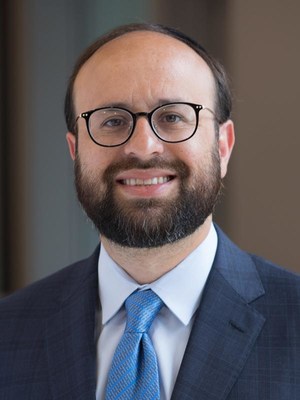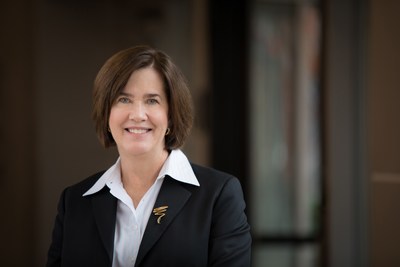[ad_1]
New Research Finds No Statistical Difference in Clinical Outcomes or Side Effects Among People Identifying as White, Asian, Black, or Hispanic
BRONX, N.Y., April 28, 2022 /PRNewswire/ — CAR-T therapy, a form of immunotherapy that revs up T-cells to recognize and destroy cancer cells, has revolutionized the treatment of blood cancers, including certain leukemias, lymphomas, and most recently, multiple myeloma. However, Black and Hispanic people were largely absent from the major clinical trials that led to the U.S. Food and Drug Administration approval of CAR-T cell therapies.
In a study published today in Blood Marrow Transplantation (BMT), investigators at the National Cancer Institute-designated Montefiore Einstein Cancer Center (MECC) report that Black and Hispanic patients had outcomes and side effects following CAR-T treatment that were comparable to their white and Asian counterparts.
“Representation in cancer clinical trials is vital to ensuring that treatments are safe and effective for everyone,” said Mendel Goldfinger, M.D., co-corresponding author of the paper, a medical oncologist at Montefiore Health System, assistant professor of medicine at Albert Einstein College of Medicine, and member of the MECC Cancer Therapeutics Program. “We couldn’t have been happier to learn that our patients who identify as Black and Hispanic have the same benefits from CAR-T therapy as white patients. We can only begin to say that a cancer treatment is transformational when these therapies benefit everyone who comes to us for care.”
People who identify as Black and Hispanic often have tumor biology, immune system biology, and side effects that are distinct from white people. However, very few minorities were enrolled in the major trials that led the FDA to approve CAR-T cell therapy.
Parity for Black and Hispanic Patients
The new BMT study evaluated outcomes for 46 participants treated at Montefiore between 2015 and 2021. Seventeen of the participants were Hispanic, 9 were African American, 15 were white, and 5 were Asian.
Among Black and Hispanic patients, 58% achieved a complete response after treatment and 19% achieved a partial response. For white and Asian patients, 70% achieved a complete response and 20% had a partial response, indicating no statistical differences among racial and ethnic backgrounds. Results were similar with respect to major side effects experienced: Approximately 95% of participants in each group had mild to moderate cytokine release syndrome, a common side effect to immunotherapy in which people experience fever and other flu-like symptoms.
Diversifying Cancer Clinical Trials
“Our findings demonstrate that we are able to effectively treat people from historically marginalized groups using CAR-T; our hope is that more people from a diverse range of racial and ethnic backgrounds will be included in clinical trials,” said co-author Amit Verma, M.B.B.S., associate director of translational science at MECC, director of the division of hemato-oncology at Montefiore and Einstein, and professor of medicine and of developmental and molecular biology at Einstein. Ira Braunschweig, M.D., associate professor of medicine at Einstein and director of Stem Cell Transplantation and Cellular Therapy and clinical program director, Hematologic Malignancies at Montefiore, is also co-corresponding author on the study.
At Montefiore, approximately 80% of clinical trial participants are minorities, compared with the nationwide figure of only 8%.
“As an academic medical center, it is not enough to make novel therapies like CAR-T available,” said Susan Green-Lorenzen, R.N. M.S.N., system senior vice president of operations at Montefiore and study co-author. “We need to be at the forefront of ensuring that these treatments are effective for the communities we serve – this research reflects this commitment.”
The study is titled “Efficacy and safety of CAR-T cell therapy in minorities.” In addition to Drs. Goldfinger, Verma, and Braunschweig and Ms. Green-Lorenzen, other Einstein and Montefiore authors are Astha Thakkar, M.D., Michelly Abreu, N.P., Kith Pradhan, Ph.D., R. Alejandro Sica, M.D., Aditi Shastri, M.D., Noah Kornblum, M.D., Nishi Shah, M.D., M.P.H., Ioannis Mantzaris, M.D., M.S., Kira Gritsman, M.D., Ph.D., Eric Feldman, M.D., and Richard Elkind, P.A.-C.
About Montefiore Health System
Montefiore Health System is one of New York’s premier academic health systems and is a recognized leader in providing exceptional quality and personalized, accountable care to approximately three million people in communities across the Bronx, Westchester, and the Hudson Valley. It is comprised of 10 hospitals, including the Children’s Hospital at Montefiore, Burke Rehabilitation Hospital and more than 200 outpatient ambulatory care sites. The advanced clinical and translational research at its medical school, Albert Einstein College of Medicine, directly informs patient care and improves outcomes. From the Montefiore-Einstein Centers of Excellence in cancer, cardiology and vascular care, pediatrics, and transplantation, to its preeminent school-based health program, Montefiore is a fully integrated healthcare delivery system providing coordinated, comprehensive care to patients and their families. For more information, please visit www.montefiore.org. Follow us on Twitter and Instagram and LinkedIn, or view us on Facebook and YouTube.
About Albert Einstein College of Medicine
Albert Einstein College of Medicine is one of the nation’s premier centers for research, medical education and clinical investigation. During the 2021-22 academic year, Einstein is home to 732 M.D. students, 190 Ph.D. students, 120 students in the combined M.D./Ph.D. program, and approximately 250 postdoctoral research fellows. The College of Medicine has more than 1,900 full-time faculty members located on the main campus and at its clinical affiliates. In 2021, Einstein received more than $185 million in awards from the National Institutes of Health. This includes the funding of major research centers at Einstein in cancer, aging, intellectual development disorders, diabetes, clinical and translational research, liver disease, and AIDS. Other areas where the College of Medicine is concentrating its efforts include developmental brain research, neuroscience, cardiac disease, and initiatives to reduce and eliminate ethnic and racial health disparities. Its partnership with Montefiore, the University Hospital and academic medical center for Einstein, advances clinical and translational research to accelerate the pace at which new discoveries become the treatments and therapies that benefit patients. For more information, please visit einsteinmed.org, read our blog, follow us on Twitter, like us on Facebook, and view us on YouTube.
![]() View original content to download multimedia:https://www.prnewswire.com/news-releases/montefiore-einstein-cancer-center-finds-car-t-therapy-effective-in-black-and-hispanic-patients-301535163.html
View original content to download multimedia:https://www.prnewswire.com/news-releases/montefiore-einstein-cancer-center-finds-car-t-therapy-effective-in-black-and-hispanic-patients-301535163.html
SOURCE Montefiore Einstein Cancer Center
[ad_2]
Source link






%2520(1).png)


